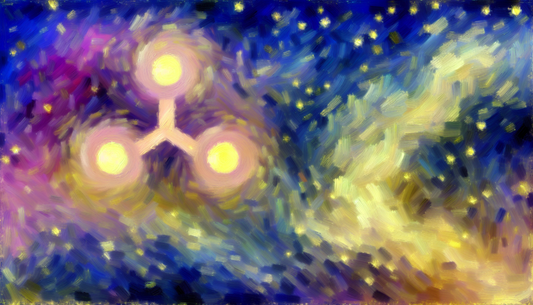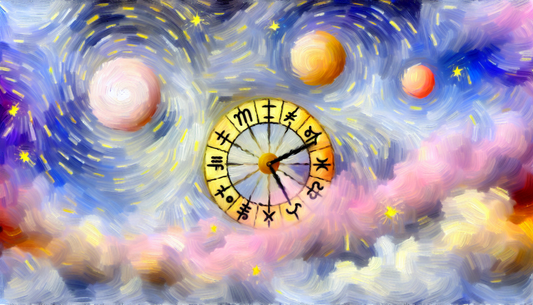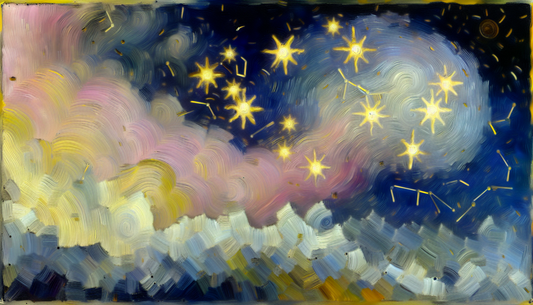Astrology has evolved into a complex and multifaceted field over the millennia, adapting to societal changes, technological advances, and cultural shifts. While its origins trace back to ancient civilizations, the modern incarnation has undergone significant transformation, fostering an environment ripe for both innovation and change. This journey through time highlights the pivotal moments and various influences that have shaped modern astrology as we know it today.
The Roots of Astrology
Astrology began in ancient Babylon around the second millennium BCE, where observations of celestial phenomena were tied to earthly events. This early form of astrology focused on the movements of planets and stars and their impact on agricultural cycles, weather patterns, and the fortunes of kings. The Babylonians developed a sophisticated zodiac, which remains a foundational aspect of astrological study.
As astrology spread across cultures, it was embraced and adapted by the Greeks and Romans, who added philosophical and geometric perspectives. Figures like Ptolemy, with his seminal work the "Tetrabiblos," laid the groundwork for astrology's intellectual framework, merging science with mysticism.
The Renaissance and Rebirth of Astrology

The Renaissance sparked a profound revival of interest in astrology, widely seen as a bridge between science and the mystical arts. Astrologers turned to the works of ancient scholars, seeking to harmonize astrological concepts with emerging scientific thought.
During this period, astrology was intertwined with various academic disciplines, including mathematics, astronomy, medicine, and alchemy. Prominent thinkers like Johannes Kepler aimed to integrate astrology with a scientific framework. They explored celestial mechanics, asserting that celestial bodies influenced earthly affairs, leading to a tentative reconciliation between astrology and science.
This fusion supported the creation of astrological tools such as ephemerides (tables detailing the positions of celestial bodies) and astrolabes, advancing the practice of astrology and making it more accessible. By the end of this era, astrology had firmly established itself as a respected field of study, influencing literature, politics, and art.
The Age of Enlightenment and Decline
However, the Age of Enlightenment in the 17th and 18th centuries marked a significant shift in perceptions of astrology. The rise of empirical science and rationalism led to skepticism about astrology’s validity. Enlightenment thinkers like René Descartes and Isaac Newton prioritized observable phenomena over mystical interpretations, relegating astrology to the realms of superstition.
As skepticism grew, institutions began to distance themselves from astrology, further impacting its academic legitimacy. Nevertheless, a dedicated minority continued to practice astrology, preserving its rich traditions. Key works during this decline, such as the astrology of Paracelsus and William Lilly’s “Christian Astrology,” showcased a synthesis of astrology and natural philosophy, laying groundwork for modern astrologers.
The 20th Century: Revival and Popularization
With the onset of the 20th century, astrology experienced a remarkable resurgence. Social upheavals, including the world wars and the counterculture movements, fueled a hunger for alternative spiritual practices. The introduction of modern psychological theories, particularly those of Carl Jung, who related astrology to archetypes and the collective unconscious, fostered a new appreciation for astrology’s psychological dimensions. The emergence of the “New Age” movement in the 1960s also contributed significantly to astrology’s popularity.
Astrology magazines, books, and, later, websites began to multiply, making astrological knowledge more readily available to the masses. Luminaries like Linda Goodman and her bestselling “Sun Signs” demystified astrology for a broader audience, introducing concepts like sun signs and compatibility in an accessible manner.
Technology Meets Astrology

As we moved into the new millennium, technology further transformed the landscape of astrology. The rise of the internet allowed astrology enthusiasts to connect globally, exchanging ideas, interpretations, and practices. Digital platforms democratized access to astrological insights, empowering individuals to explore their birth charts and zodiac signs online.
Apps and software now provide instant astrological analyses, creating a highly interactive and personalized experience. Popular astrology apps like Co-Star and The Pattern utilize complex algorithms and provide users with daily insights based on their natal charts. Moreover, social media platforms have facilitated a cultural shift towards public sharing of astrological content, making it a central aspect of contemporary digital identity among millennials and Gen Z.
The Current Landscape of Modern Astrology
Today, astrology exists as a diverse and multifaceted practice. Traditional aspects, such as natal astrology, horary astrology, and mundane astrology, continue alongside new paradigms such as evolutionary astrology and modern psychological approaches.
Astrology is now often discussed in conjunction with topics such as feminism, social justice, and self-care. The dialogue surrounding astrology has shifted from being solely predictive to a tool for personal growth and understanding human behavior. This evolving discourse positions astrology as a popular subject in mental wellness and self-discovery.
The Future of Astrology
Looking ahead, the landscape of astrology is likely to continue transforming. As cultural and societal dynamics evolve, astrology will adapt, reflecting the values and beliefs of future generations. The inclusion of diverse perspectives, such as those from different cultures and marginalized voices, promises to enrich the practices and interpretations of astrology.
Moreover, advancements in technology will likely lead to further innovations, integrating artificial intelligence and data analytics into astrological practices. The potential for virtual reality astrology experiences could redefine how individuals engage with their astrological identities.
At its core, modern astrology remains a blend of ancient wisdom and contemporary practices, striving to provide insight, comfort, and a deeper understanding of the human experience. Whether viewed as a potent psychological tool or a fun exploration of cosmic connections, astrology is set to play a significant role in our ongoing quest for meaning and connection in a rapidly changing world.















